God and I have a deal. He always holds up his end. I do a poor job of holding up mine. But I try. Here’s the deal – when He puts an opportunity in front of me to help someone, to share what He has given me, to serve those who are in need, I say yes. And then He works it out. It’s kind of a two-for-one deal, because Ben and I are in this together – all in.
The cool thing is, He never fails to work it out. The problem is, sometimes we don’t say yes. But this time, we’ve both said yes. And here is our yes…
When we were in Tanzania last fall, we lived in Monduli – a small village just outside of Arusha. The clinic Ben worked at is actually between Monduli and Monduli Juu. Monduli Juu sits at the top of one of the small mountains in the Monduli district. It’s village that is comprised of dozens of small and large bomas, which are the community settlements of the Maasai people. The huts in these bomas are made of mud with thatched roofs, they have no electricity, no running water, and no toilets. The women walk several hundred yards or even miles to carry water from the only source, a surface pond or lake that is also used to water their livestock. The water is filthy and contaminated with both human and animal wastes, and carries all sorts of disease. The children tend the livestock (cattle and goats), usually beginning at about three years of age. Yes, that’s three. Most of the children will never go to school. Girls are married as early as twelve or thirteen years of age, and may have as many as five or six pregnancies by the time they are eighteen. She won’t have that many children, however, because some will die. The maternal mortality rate is high, as is the infant mortality, both prenatal and postnatal. Hunger is the normal, malaria runs rampant, and death is a part of everyday life there.
In Monduli, life for some is better. There are government schools there that many children are able to attend – if their families can afford to pay. The government will tell you that the schools are free, meaning they do not charge tuition. However, at most schools, the children are required to “pay” with food each month – kilos of rice, beans, flour, maize, etc. And they have to have uniforms. Many families simply can’t afford this, so the children don’t go to school. There are some jobs, but not enough to go around. Many families rely on subsistence farming, which is entirely dependent on the rains. There is no irrigation at all, so no rain means no food. For those lucky enough, having a job can often mean sending your children to live with distant relatives, because there is no kind of daycare at all. For most, life is lived without any thought of it ever being better.
Women have an especially hard life both in Monduli and in Arusha. They are, for the most part, still second class citizens with few, if any, rights. They are physically and emotionally abused. They are trafficked – sometimes under the guise of marriage, many times not. Pregnancy is not always a season of joy like it is here. Becoming pregnant as a teen means certain expulsion from school, if indeed you are lucky enough to be going to school. It can also mean being kicked out of your home. It doesn’t matter if you are pregnant from your boyfriend or from rape. You have still brought shame to your family. And even if you are married when you become pregnant, your husband might decide to leave you (or kick you out of your home) and find another wife. It happens all too frequently.
This is where our yes is. This is where God has asked us to help. We don’t really know why, and quite frankly, we really haven’t asked. We just decided to honor our part of the deal and say yes.
In the US, our yes is called African Christian Ministries. We are only working in Tanzania right now. But knowing how mighty the God we serve is, we decided not to limit our yes to Tanzania, even in name. In Tanzania, our yes is called Peace Love Mercy Tanzania. It comes from Jude 1:2 – “May mercy, peace and love be yours in abundance.” We have already started doing some work there. We currently have 3 programs – one is up and running, and the 2 others will be sometime later this year. Our Rehema (mercy) program is a response to widespread hunger, water borne disease and malaria problems. Amani (peace) House will be a residential care and mentoring program for women in crisis pregnancy. And Upendo (love) Community Center will house a free daycare and vocational training center. Does it sound overwhelming to us? Certainly. But we’re not the ones in charge. The one in charge fed 5 thousand people with a few loaves and fish. He’s definitely got this.
We are not going to change the world with this ministry, and that isn’t our goal. But for that one widow who doesn’t know if she will eat that day, or the one pregnant teenager faced with living on the street, or the one child who dreams of going to school, we can change their lives. And most important of all, we can show them a God who loves them desperately and wants them to come to know Him. Yes!




Recent Comments